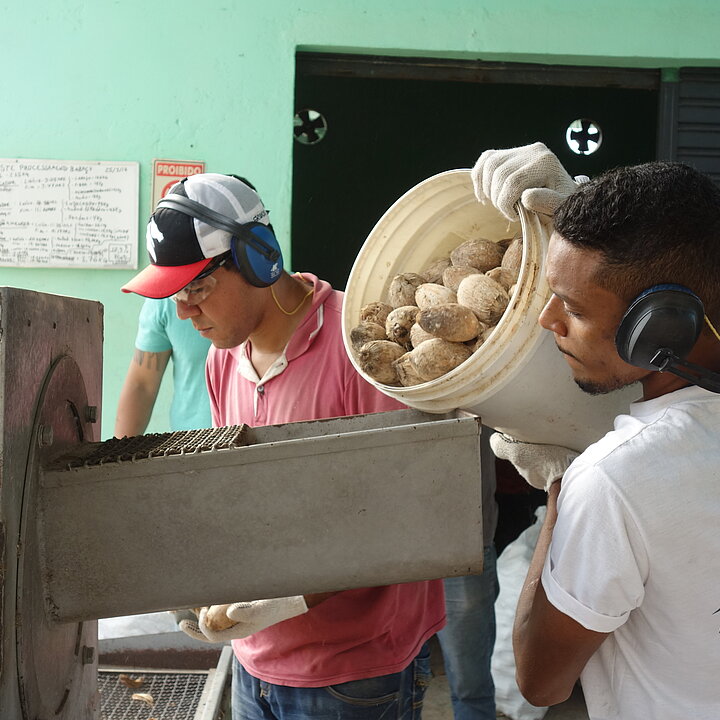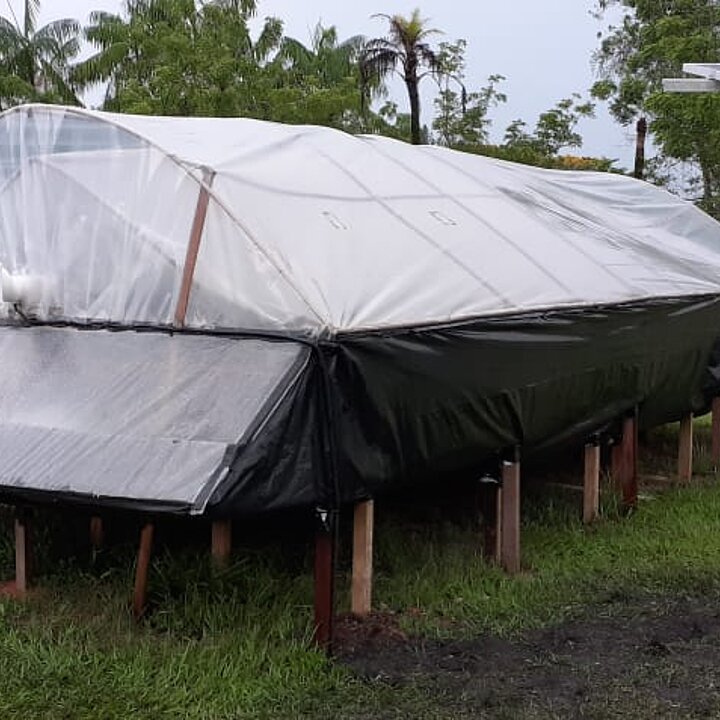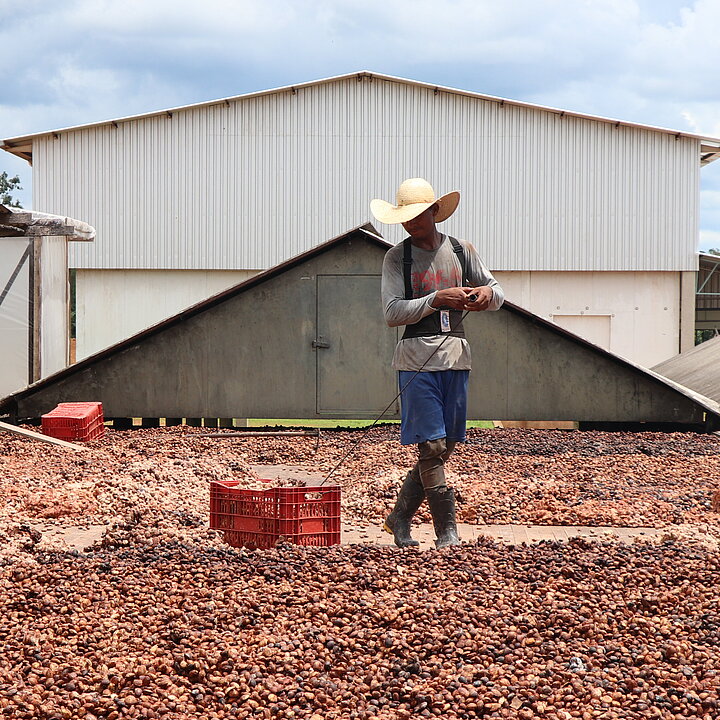The challenge
Many people in the Amazon region earn a living from gathering wild plants and fruits and from smallholder farming. In most cases, their incomes are low and their farming methods unsustainable. Clearing the forests to gain arable land is a seemingly attractive option. To conserve forest areas, these areas need to offer the population adequate income opportunities.
For Symrise and Natura, plants growing in the forest are important raw materials for oils that they process into cosmetics. The smallholders who gather and process the plants are therefore an important part of their supply chain. However, the cooperatives that the farming families belong to have so far failed to adequately meet the two companies' requirements for quality and quantity or to comply with the sustainability criteria for production. To run the cooperatives successfully in the long term, modern equipment and know-how on effective and sustainable gathering, harvesting and processing of the plants is required, in addition to training in management methods and organisational development tools.
Project approach
From 2017 to 2021, the project partners supported 17 cooperatives and farmers' associations in three regions of Brazil with around 1,140 members by expanding existing, and establishing new supply chains, for gathering and processing biodiversity products such as the fruits from cocoa and cupuassu trees, babassu palms, and seeds from andiroba trees.
With a financial support of nearly €3 million, measures carried out included:
- Improving the existing processing facilities and processes to improve the shelf life and enhance the quality of the products.
- Training smallholder farmers and collectors in gathering, harvesting and processing methods and in managing their cooperatives.
- Developing marketing strategies and business plans for the cooperatives and providing support with access to new markets.
Symrise was involved in developing new methods and technologies, while Natura advised the cooperatives and conducted training.
GIZ contributed access to its network, provided support with processing optimisation and also conducted training.
If we want to protect the Brazilian rainforests effectively, we need to consider both emotional and climate policy factors. We are grateful to GIZ for the cooperation that we have come to value in various projects over the past years. The synergies in place to implement the measures have contributed significantly to protecting this unique landscape.


Results
Natura gained 500 new suppliers, and all the participating cooperatives were accredited by the Union for Ethical BioTrade (UEBT) by 2021.
New prototypes for the cooperatives’ processing plants were developed and tested. In addition, new production lines were created from processing waste.
With these activities, Symrise and Natura were able to secure sources for important raw materials and achieve high quality standards for processing.
The improved processing, higher production volumes and new production lines allowed the cooperatives to increase their sales by more than 50 per cent.

develoPPP Classic
develoPPP Classic is aimed at medium-sized and large companies that want to invest sustainably in a developing or emerging country and expand their operational activities locally. Suitable projects receive technical and financial support of up to two million euros in public funding.
Project partners






